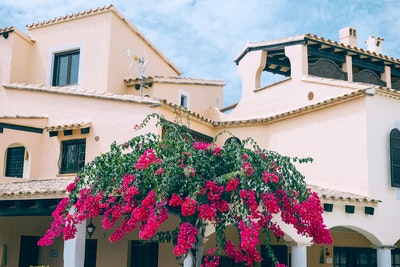Why Invest In Property Abroad?

Investing in property abroad may seem like a daunting prospect.
However, it could have many perks compared to investing in local property.
Below are some of the big reasons to invest in property abroad.
Cheaper property and cheaper mortgages
Average property prices around the world vary. While there are some countries around the world such as Switzerland and Japan where the property is much more expensive than in the US, there are countries such as Greece and the Philippines that are much cheaper.
Getting a mortgage can also be easier in some countries. The average down payment in the USA is about 6%. In other countries, 2% and even 1% mortgages are quite common.
Interest rates can also vary from country to country, with some countries sporting very low interest (in fact, Japan and Switzerland – where property prices are much higher – have the lowest average mortgage interest rates in the world, making property actually quite affordable).
The vacation rental market is growing
While you could choose to rent out the overseas property to local tenants, another option could be to rent out the property to guests. Vacation rentals can be a lucrative form of investment – what you may usually charge a tenant for a month could be charged to guests for a week.
By encouraging a steady flow of guests, you can then make enough money to cover the mortgage and bills, as well as making a profit on top.
Currently, the tourism industry has been stunted by a coronavirus. However, there is expected to be a huge post-pandemic boom in tourism once people are allowed to freely travel again. The vacation rental market was rapidly growing before 2020.
This trend is expected to continue – thanks to the rise of platforms like AirBnB it has become much easier for guests to rent out vacation homes, and much easier for vacation homeowners to find guests.
You can get personal use out of it too
An overseas property could also double up as a personal vacation home abroad. When there aren’t any guests staying there, you can use it for your own leisure. You can treat it as a second home.
It could even be somewhere that you eventually plan to retire to. Over the years, you may be able to pay off the mortgage so that when you come to retire you have no debts left to pay.
Tips for investing in property overseas
There are clearly lots of benefits to investing in property abroad. However, such an investment doesn’t come without its extra challenges. Here are a few tips for successfully investing in property overseas.
Choose a location you know
You should never invest in a property without thoroughly researching the location first. It could make sense to invest in a property somewhere that you’ve regularly traveled to before. This way, you may already have a familiarity with the local amenities and you’ll have a good understanding of which areas are worth buying a property in.
Alternatively, you can always get to know a location first. Perhaps you’ve seen some great property deals in Budapest. Why not use this as an excuse to travel to the city on vacation, while doing some research in the process?
Understand the needs and wants of your tenants/guests
If you’re going to be renting out your property to tenants or guests, you need to consider your investment from their perspective.
When buying a property to rent out to tenants, it could be important to research the local demand for rental properties. Are there lots of people looking to rent in that area? What kind of amenities do renters want and how much rent are they willing to pay?
If you’re buying a property to rent out to guests, you need to buy in a location that attracts a lot of visitors from outside. Ideally, you want there to be a viable market all year round – some locations may only have a seasonal demand, which could result in your property sitting empty six months of the year.
The property itself meanwhile needs to appeal to your target guest. This could mean finding a property that has certain luxuries such as a pool or hot tub if you’re appealing purely to guests on vacation.
City apartments can sometimes be a safe bet because cities tend to attract tourists and traveling professionals all year round who are often not looking for too many luxuries. The Henge Kepong in Singapore is a good example of such accommodation. Buying in a city may be more expensive, but you won’t have to worry about attracting business.
Hire local help
When buying property abroad, you may want to hire some local help. During the buying process, you’ll likely want to hire a local conveyancer to handle the legal paperwork and possibly advise you on property law within the country.
A translator or interpreter could also be necessary if you’re buying a property in a non-English speaking country – while agents, conveyancers, and mortgage valuators may have limited English, it may not always be enough to communicate the complexities.
Once the property is purchased, you may then need to consider a local property manager if you’re planning on renting it out to tenants or guests. This is someone who can maintain the property for you and provide immediate support for tenants and guests if there are problems. Make sure to hire someone that you trust.
Factor in the hidden costs
While buying an overseas property could work out a lot cheaper than buying local property, there may still be some hidden costs to be wary of.
Every country has its own tax laws – there could be land tax or council tax to pay. You also need to consider how your income will be taxed – if you’re not careful, you could end up paying tax in two countries. Hiring an accountant or financial advisor could be useful for understanding tax laws.
You also need to be wary of the currency exchange. There will be fees involved when transferring currency. You’ve also got to be wary of fluctuating currency rates – if a currency rises or falls, this could affect the amount of money you’re receiving each month.






